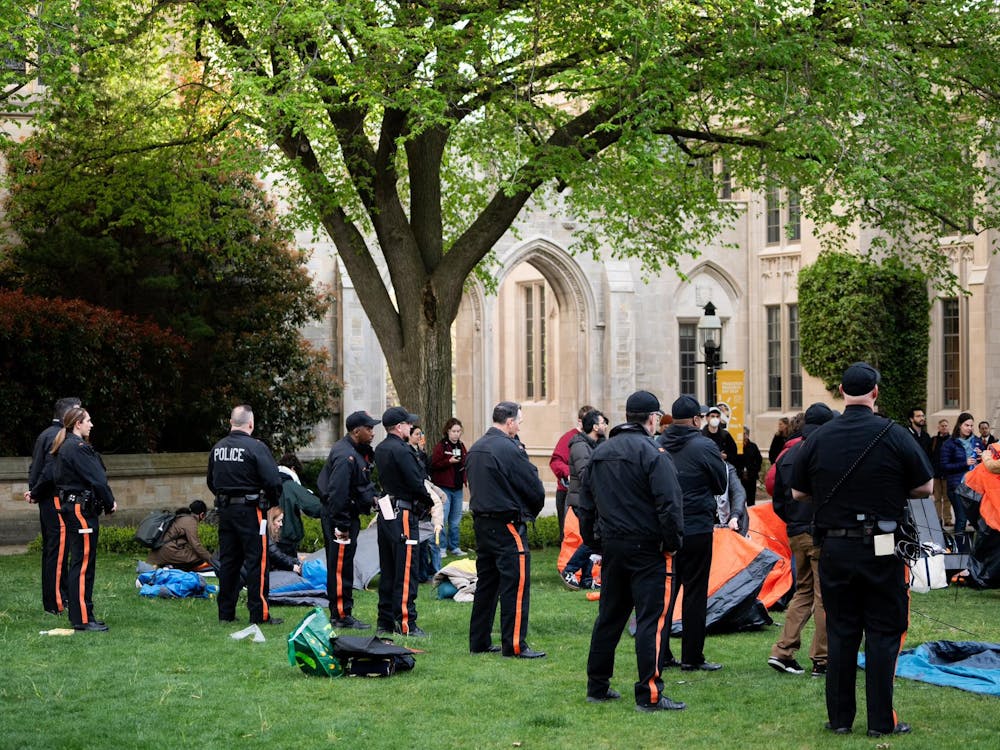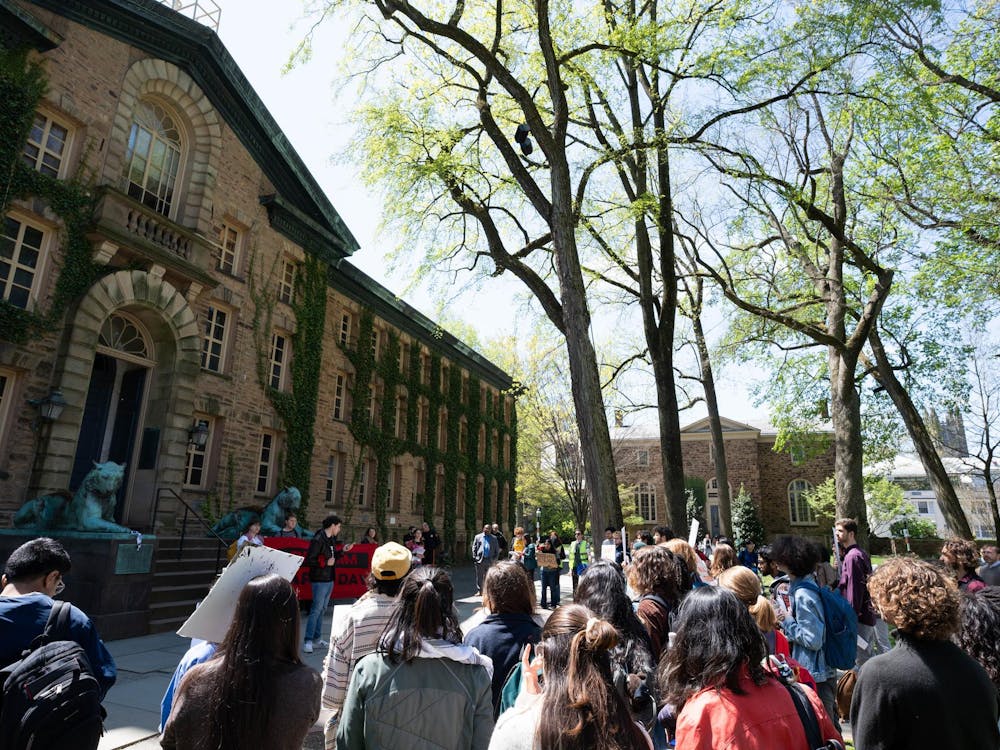This past Sunday, Sept. 18, Daily Princetonian senior columnist Beni Snow ’19 detailed his opposition to a policy of Princeton University Dining Services (PUDS) that all students must wear shoes inside the dining halls. I should make clear that I am responding to the ideas Snow has presented and do not intend any personal insult. That being said, however, the ridiculous deserves to be ridiculed, and ridiculed it shall be. (For the sake of full disclosure, I should note that I am a student worker at the Butler-Wilson dining hall.)
Snow begins by enumerating some University rules that he finds absurd, recognizing his inability to change them, and deciding to discuss instead an important issue with real potential for change: the tyrannical oppression which PUDS inflicts upon the discalced. Snow’s claim, that the ban on barefoot dining is comparable to the draconian fines for door-propping, is absurd. Though Snow claims that the rule forces him to carry around a pair of shoes unnecessarily, this is something that the preponderance of members of Western society do every day without even thinking. It is, quite simply, the norm. It is not merely more comfortable, in the majority opinion, to wear shoes outside one’s home or dorm, or more specifically inside an establishment. It is a sign of the most basic respect for the institution. Perhaps more clearly stated, to enter barefoot into an establishment where this is not the norm — whether de facto or by its own policy — is fundamentally disrespectful to that institution and to its proprietors and staff, as well as to the other diners.
To borrow an obscure analogy from the musical world, playing the pipe organ in organ shoes is the norm. If you happen to be caught without them, or if you are a beginner and do not own a pair, you reluctantly play in your socks. But you simply do not take off your socks and proceed to play — that is just an insult to the instrument.
But perhaps there exists a silent majority of Princeton students who wish to dine without the insufferable burden of wearing a pair of shoes. Perhaps if there were no rule in place, Princeton students would abandon their footwear en masse all across campus, and a new de facto norm would establish itself. And perhaps the dining halls are not so formal an institution that lack of shoes would significantly affect the atmosphere. Granted all of this, my first retort becomes irrelevant. However, Snow further argues,
“Wearing shoes is like wearing gloves: It makes sense if it’s really cold or if you’re working with heavy machinery, but it’s kind of weird to have them on all the time. If Princeton doesn’t make me wear gloves for sanitary reasons in the dining hall, then I don’t see why shoes should be any different.”
He also states, “After all, [my feet] get washed pretty frequently. When was the last time you washed your shoes?”
Does Snow’s new argument that shoes are unnecessary in pleasant weather hold up to scrutiny? The short answer, of course, is no. To see this, apply it to another article of clothing; say, pants, shorts, skirts, or any other lower-body outerwear. Pants and such are like gloves for your legs: it makes sense to wear them “if it’s really cold”, but otherwise they are, strictly speaking, unnecessary, and certainly not necessary for “sanitary reasons.” We wash our rears rather frequently — when was the last time a dining hall chair got scrubbed?
And yet we do wear pants, or skirts, or something to cover our rears. And if asked to justify our choice to do so, I would hazard to guess that most of our first responses would have nothing to do with bacteria, but rather with not wanting to walk around in our underwear. Granted, this counterexample is quite hyperbolic — no one is suggesting pants-optional dining halls (though Snow would like to see the Nude Olympics return). The whole reason we wear any clothes, especially in the summer, is not for warmth, nor for comfort, but out of a rightly felt sense of modesty. However our individual senses of modesty may vary from our peers’, we can generally agree that a few key areas should be clothed in public. The more formal the situation, the more clothes we generally wear. And since our hypothetical majority of would-be shoe-scorners has made no endeavor to express or promote its desires, save for Snow, it is safe to assume that we cannot treat shoes as mere foot-gloves. Under these circumstances, they serve a social purpose analogous to that which pants and other clothes serve, and my original point regarding basic respect for the institution remains.
Finally, Snow closed by correctly noting the many problems presently facing our world: refugee crises, widespread disease, and everyone’s favorite political punching bag, Donald Trump. He reasoned that because neither he nor the University administration is able to address these problems “easily,” this non-problem is deserving of attention. If I may, I would simply suggest that to put even as little time and effort into those issues as it took to write Sunday’s column would have been a far more fruitful use of Snow’s time.
Matthew Penza is a sophomore from New Fairfield, Conn. He can be reached at mpenza@princeton.edu.









